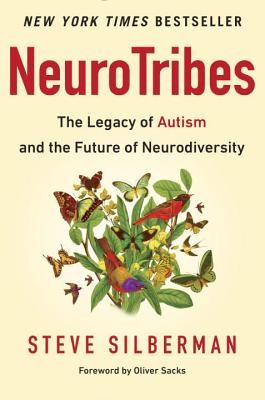B 🌻 A B reviewed NeuroTribes by Steve Silberman
Phenominal
5 stars
I picked up this book after I was recently diagnosed with both Autism and ADHD in my fifties. I wanted to know more about the history of Autism, and why I am part of the lost generations. Very well written, and engaging, this account of the history of Autism is well worth a read, regardless of if you're trying to understand your own head, that of someone else, or just want to know more.
Thoroughly recommended.
I picked up this book after I was recently diagnosed with both Autism and ADHD in my fifties. I wanted to know more about the history of Autism, and why I am part of the lost generations. Very well written, and engaging, this account of the history of Autism is well worth a read, regardless of if you're trying to understand your own head, that of someone else, or just want to know more.
Thoroughly recommended.




